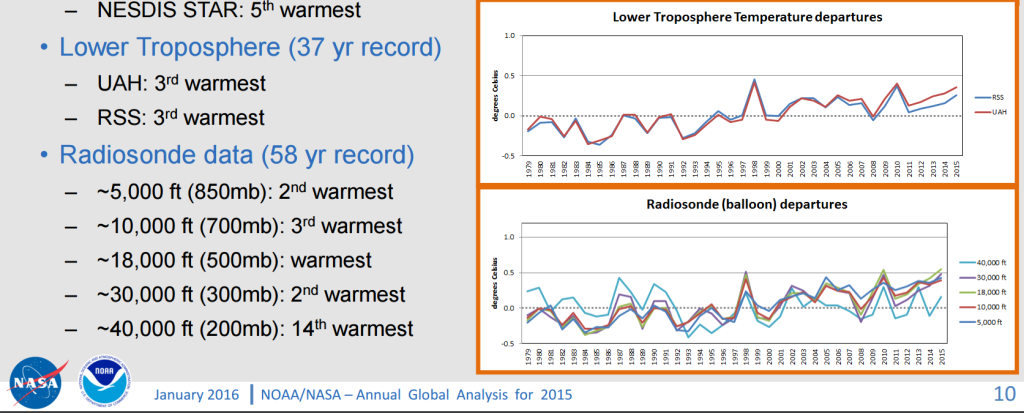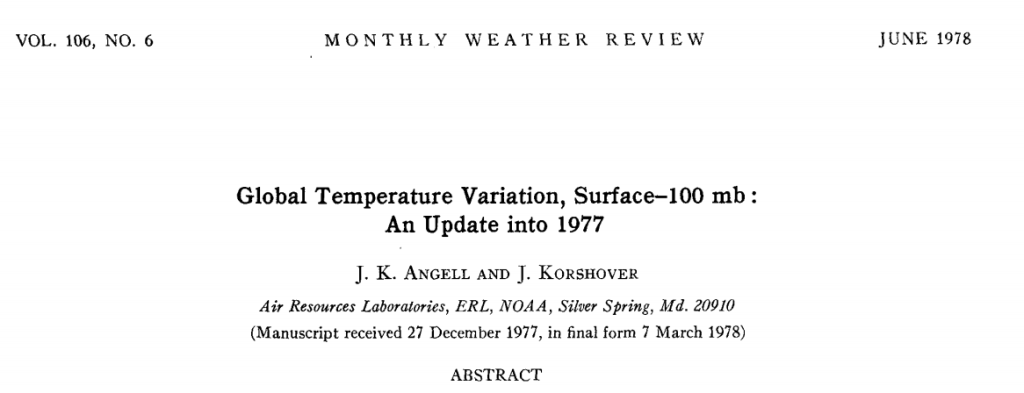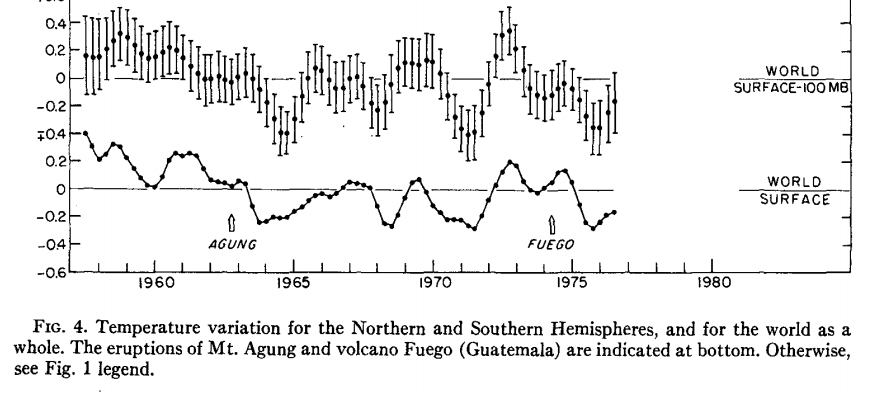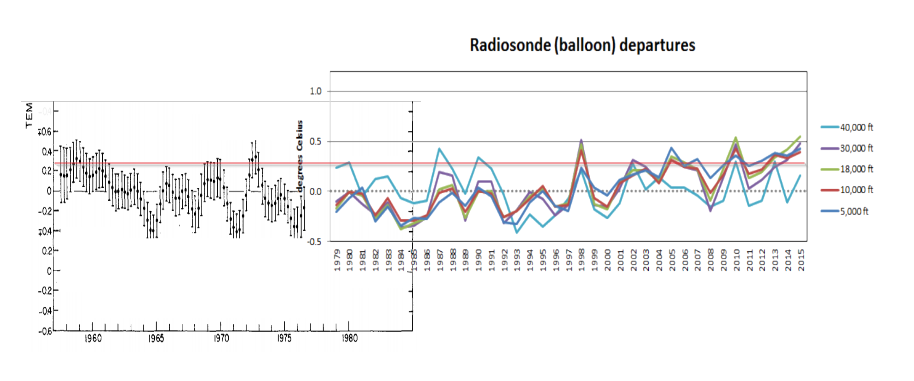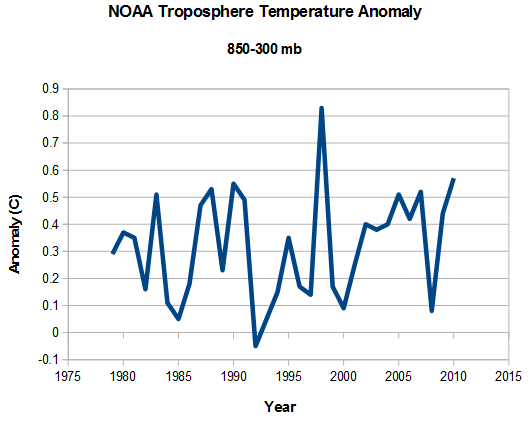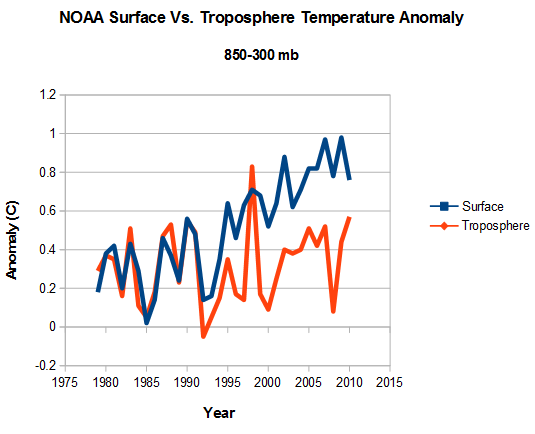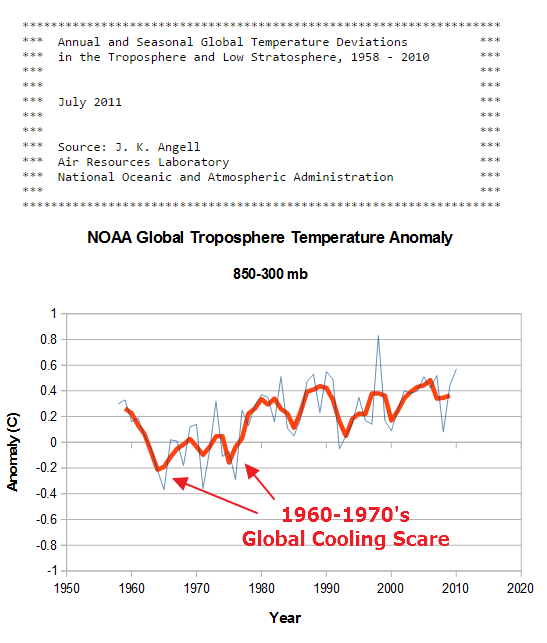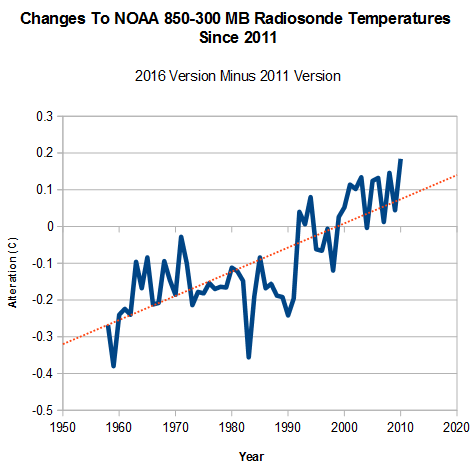1. http://louderwithcrowder.com/300-scientists-blast-noaa-fudging-climate-change-data/
The Democratic party and leftist media like to mix science and feelings almost as much as Cosby likes to mix roofies and women (ALLEGEDLY). Yet not partaking in the climate change club will paint you as someone who just can’t science… Unless you science for a living. Like these 300 scientists who are imploring lawmakers to investigate NOAA.
Americans are tired of research conducted behind closed doors where they only see cherry-picked conclusions, not the facts. This letter shows that hundreds of respected scientists and experts agree that NOAA’s efforts to alter historical temperature data deserve serious scrutiny.NOAA scientists upwardly adjusted temperature readings taken from the engine intakes of ships to eliminate the “hiatus” in global warming from the temperature record.If we subtract the [old] data from the [new] data… we can see that that is exactly what NOAA did…It’s the same story all over again; the adjustments go towards cooling the past and thus increasing the slope of temperature rise. Their intent and methods are so obvious they’re laughable.

What does this tell us? A lot actually.
NOAA is responsible for two things: 1) getting money to throw their hands up in the air and cry about unrealistic environmental “dangers”. 2) Monitoring the conditions of the ocean and atmosphere. But mostly number one.
Real scientists care about preserving the integrity of accurate research. So when NOAA conveniently forgot to include a 15 year pause in “global warming” in their recent data, hundreds of experts took issue with it. Because they respect science. As real scientists do.

Problem is there’s an agenda at play, so NOAA isn’t letting crazy things like “facts” or “data” get in the way of
SCIENCE that political agenda. Which is exactly the problem with the “man made climate change global warming” issue. Science doesn’t matter, an agenda does (read MYTH BUSTED: Climate Change ‘Consensus of Scientists’ is Idiotic). An agenda that conveniently comes with higher taxes, more regulations and bigger government.
Follow the money, folks. It’ll lead you into a crap storm of lies.
Speaking of climate change, here’s a throwback video on global warming.
2.
NOAA Radiosonde Data Shows No Warming For 58 Years
In their “hottest year ever” press briefing, NOAA included this graph, which stated that they have a 58 year long radiosonde temperature record. But they only showed the last 37 years in the graph.
Here is why they are hiding the rest of the data. The earlier data showed as much pre-1979 cooling as the post-1979 warming.
I combined the two graphs at the same scale below, and put a horizontal red reference line in, which shows that the earth’s atmosphere has not warmed at all since the late 1950’s
The omission of this data from the NOAA report, is just their latest attempt to defraud the public. NOAA’s best data shows no warming for 60 years. But it gets worse. The graph in the NOAA report shows about 0.5C warming from 1979 to 2010, but their original published data shows little warming during that period.
Due to Urban Heat Island Effects, the NOAA surface data shows nearly one degree warming from 1979 to 2010, but their original radiosonde data showed little warming during that time. Global warming theory is based on troposphere warming, which is why the radiosonde data should be used by modelers – instead of the UHI contaminated surface data.
NOAA’s original published radiosonde data showed little net troposphere warming from 1958 to 2010, when the data set ended.
The next graph shows how NOAA has altered their 850-300 mb temperature data since 2011. Another hockey stick of data tampering.
2016 version : RATPAC-A-annual-levels.txt
Climateers Can’t Handle the Truth
Lee Raymond’s 1997 climate speech in China is looking better than ever.
Exxon Mobil CEO Lee Raymond testifies on Capitol Hill, November 2005. PHOTO: BLOOMBERG NEWS
Congrats are due for the term “climate denialist,” which in 2016 migrated from Paul Krugman’s column to the news pages of the New York Times.
On Dec. 7, the term ascended to a place of ultimate honor when it figured in the headline, “Trump Picks Scott Pruitt, Climate Change Denialist, to Lead E.P.A.”
Unfortunately, never to be explained is precisely which climate propositions one must deny in order to qualify as a denialist. In zinging Mr. Pruitt, currently Oklahoma’s attorney general, the Times rests its unspoken case on a quote from an article this year in National Review, in which he and a coauthor wrote: “Scientists continue to disagree about the degree and extent of global warming and its connection to the actions of mankind.”
But this statement is plainly true. No climate scientist would dispute it. Through all five “assessment reports” of the Intergovernmental Panel on Climate Change—sharer of Al Gore’s Nobel prize—the central puzzle has been “climate sensitivity,” aka the “degree and extent” of human impact on climate.
Greenpeace adopts the same National Review article to attack Mr. Pruitt, lying that he and a coauthor “claimed the science of climate change is ‘far from settled.’”
The science is not settled (science never is), but this is not what Mr. Pruitt was referring to. His plain, unmistakable words refer to a “major policy debate” that is “far from settled”—a statement that indisputably applies even among ardent believers in climate doom. Witness the battle between wings of the environmental movement over the role of nuclear power. Witness veteran campaigner James Hansen’s dismissal of the Paris agreement, which other climate campaigners celebrate, as “worthless words.”
These lies about what Mr. Pruitt wrote in a widely available article aren’t the lies of authors carried away by enthusiasm for their cause. They are the lies of people who know their employers and audiences are beyond caring.
Which brings us a two-part article in the New York Review of Books by representatives of the Rockefeller family charity, desperately trying to make the world care about their fantasy that Exxon is somehow a decisive player in the policy debate—Exxon, not voters who oppose higher energy taxes; Exxon, not the governments that control 80% of the world’s fossil fuel reserves and show no tendency to forgo the money available from them.
The Rockefeller family’s charitable attachment to the climate cause is understandable, though. Their money might instead be used to bring clean water to poor villages, immunize kids against disease, or improve education. But such programs can be evaluated and found wanting due to fraud or incompetence, whereas climate change is a cause to which money can safely be devoted to no effect whatsoever without fear of criticism.
Twenty years before his successor became Mr. Trump’s nominee to be secretary of state, Exxon’s then-CEO Lee Raymond gave a much vilified speech in China—a much misrepresented speech, too.
He did not say humans were not influencing climate, but the degree was highly uncertain, and future warming was not a “rock-solid certainty,” he said.
He could not have known he was speaking near the peak of an observed warming trend, and that relatively little or no warming would be recorded over the next 20 years.
He said poor countries would and should choose economic growth over suppressing fossil fuel use. They did, and some one billion fewer people today are living in extreme poverty (as defined by the World Bank).
He said fossil energy would continue to fuel economic prosperity, though consumption growth would moderate with increased efficiency, and as poor countries devoted a share of their increasing wealth to environmental improvement. He was right.
He predicted that technology would open up new reserves to fuel the global economy, though he didn’t mention and perhaps didn’t know about fracking.
All in all, it was a performance, in many fewer words, far more cogent than the Rockefeller pieces, notable mainly for their childishness about both climate science and climate politics.
Donald Trump, our new president-elect, has been tagged for indiscriminately referring to climate change as a hoax. Here’s what he actually said at a campaign rally in South Carolina one year ago about climate advocacy: “It’s a money-making industry, OK? It’s a hoax, a lot of it.”
This statement, with its clearly framed qualifications, is true and accurate in every detail. It’s a statement of basic truth that can be embraced, and increasingly should be, by exactly those people most concerned about man-made climate change.
Yet it won’t be, for reasons demonstrated by the New York Times’ adoption of the term climate denialist, whose deliberately non-discriminating function we now take care to state precisely: It enables a kind of journalism that is unable—incapacitates itself—to stumble on truths that would be inconvenient to climate relig

